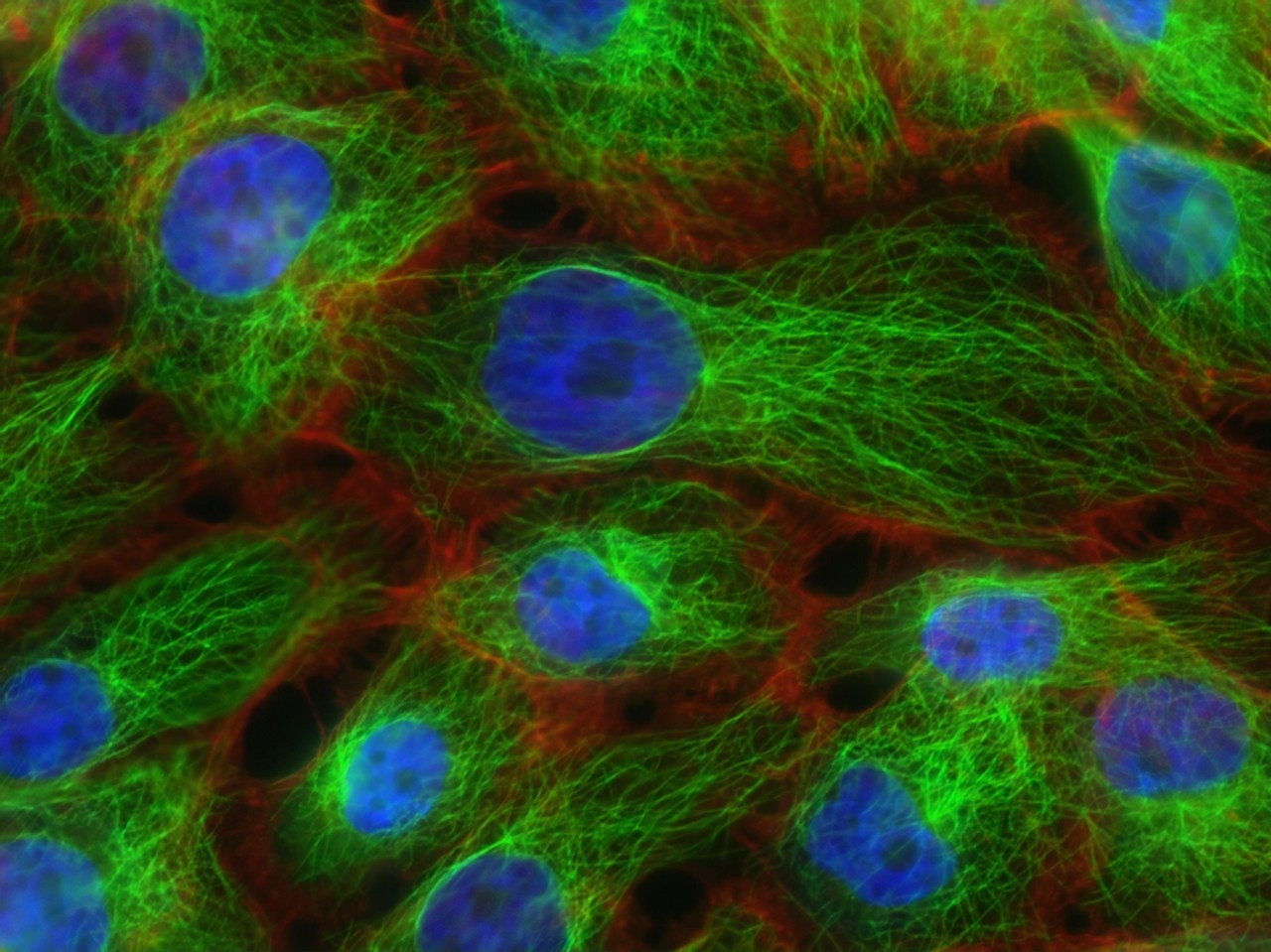
Fierce Biotech: Making 'cold' tumors responsive to immunotherapy
UC research points to combination therapy involving the immune system for breast cancer
Some cancers create a hostile environment that allows them to evade immune attacks. That's why many patients with cancer don't respond to immuno-oncology treatments. Scientists are looking for ways to turn these so-called “cold” tumors into “hot” ones that are susceptible to immunotherapy.
A research study by scientists at the University of Cincinnati have discovered proteins that can be targeted to overcome resistance to cancer immunotherapy in animal models.
Syn Kok Yeo, PhD, research instructor in the department of cancer biology at the UC College of Medicine and a member in the lab of Jun-Lin Guan, PhD, the Francis Brunning Professor and Cancer Biology Department Chair, describes his research. He is a member of the UC Cancer Center.
Featured photo of stress fibers and microtubules in human breast cancer cells. Courtesy of the National Cancer Institute.
Next Lives Here
The University of Cincinnati is classified as a Research 1 institution by the Carnegie Commission and is ranked in the National Science Foundation's Top-35 public research universities. UC's graduate students and faculty investigate problems and innovate solutions with real-world impact. Next Lives Here.
Related Stories
Cincinnati a top destination for street art, museums
February 27, 2026
Discover why Cincinnati is a top destination for street art and museums, ranked among USA Today’s 10Best for 2026. Explore how University of Cincinnati research shows public art boosts community vitality, and find the best things to do near UC’s campus for students and visitors alike.
Intrapreneurship: Strategies to promote internal innovation
February 27, 2026
Intrapreneurship encourages employees at large companies to innovate and test ideas with an entrepreneur’s level of freedom. Learn how to become an intrapreneur in your organization.
'Paradigm-shifting' study confirms effectiveness of long-acting HIV treatment
February 26, 2026
The results of a clinical trial involving the University of Cincinnati, recently published in The New England Journal of Medicine, show people failing HIV treatments with oral medications were able to be treated successfully using injections.
